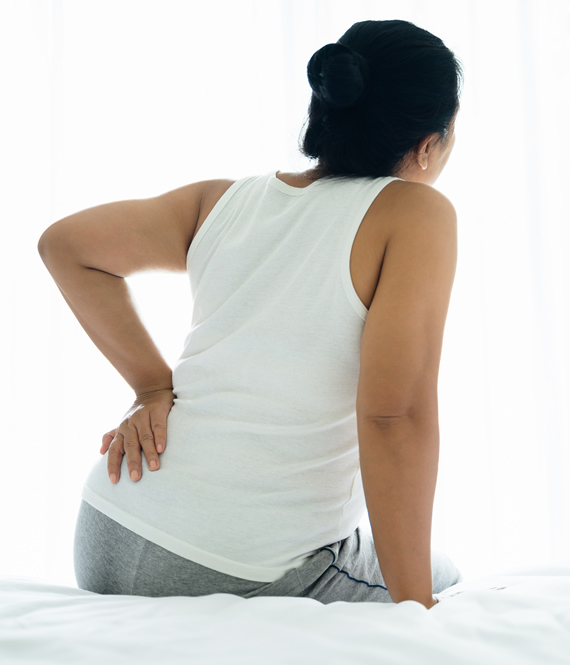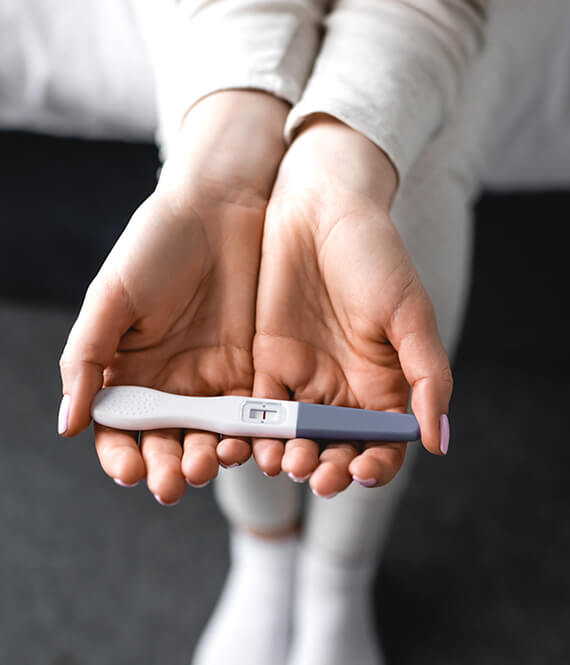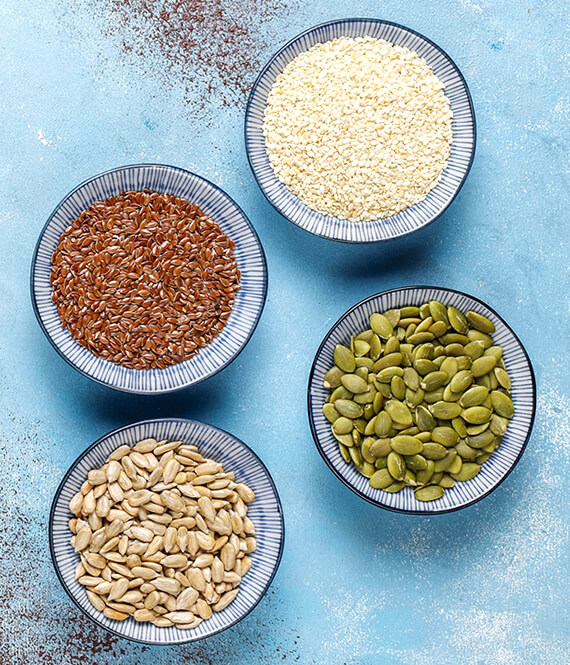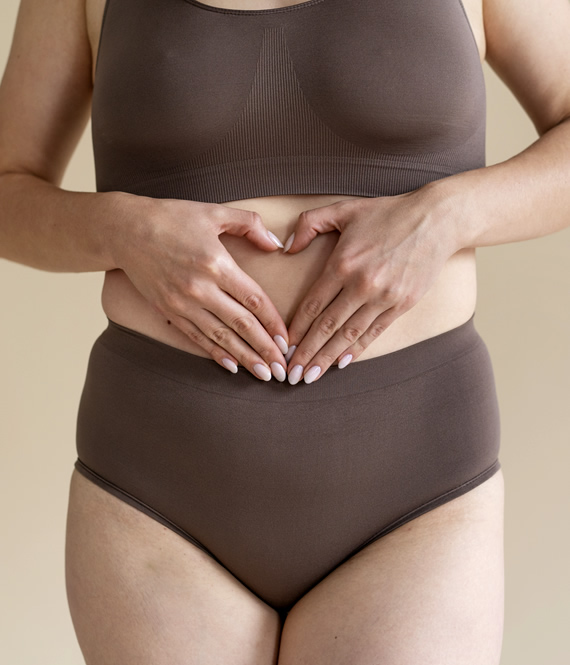
Know It All: 12 Reasons For Late Periods That Are Not Pregnancy
We recommend helpful products in our articles. Read our full disclosure here. The content on this website is not intended to be a substitute for professional advice, diagnosis, or treatment.
While pregnancy is a thought that often takes the lead, many other factors, such as lifestyle habits and health conditions, can influence the regularity of your menstrual cycle.
These delays can range from being late by a few days to prolonged amenorrhea, defined as the absence of menstruation for three or more consecutive cycles.
Experiencing a late period but not pregnant?
Let’s unpack both common and not-so-common reasons that can affect your menstrual cycle and cause late periods, along with some associated symptoms, possible treatments, and preventative measures.
Reasons For Late Periods That Are Not Pregnancy
1. Birth Control
Changes in menstrual patterns can be a side effect of birth control methods like IUDs (Intrauterine Devices), hormonal contraceptives, and the Depo-Provera shot.
Birth control pills, whether standard or extended-cycle, can also influence the length of your menstrual cycle.
Note that the birth control patch and the ring can similarly alter your cycle.
If your periods become irregular while using contraceptives, discuss with your healthcare provider to possibly adjust the method or dosage.
2. Stress
Both emotional and physical stress can disrupt your menstrual cycle by affecting the balance of hormones that control ovulation and menstruation.
If you’re dealing with heavy stress, consider stress management techniques like yoga, meditation, or deep breathing exercises.
Seeking help from a mental health professional can also be beneficial.
3. Perimenopause
This phase precedes menopause, marking the end of your reproductive years.
It can lead to irregular periods, which might be less frequent, more frequent, lighter, or heavier than what you’re accustomed to.
Hormone replacement therapy or birth control pills could help manage these symptoms.
However, it’s essential to discuss the benefits and risks with your doctor.
4. Breastfeeding
Periods during breastfeeding can be less frequent, lighter, or may stop altogether.
It’s still possible to get pregnant during this time, so a pregnancy test could be a good idea if you’re breastfeeding and not menstruating.
5. Polycystic Ovary Syndrome (PCOS)
In PCOS, ovaries might develop more follicles than usual, delaying the release of a mature egg, and thus your period.
Besides irregular periods, symptoms might include weight gain, acne, and excess hair growth.
Lifestyle modifications and medication, like birth control pills or anti-androgen drugs, can help manage the symptoms of PCOS.
6. Thyroid Issues
An overactive or underactive thyroid gland can lead to irregular or late periods.
Other symptoms might include weight changes, fatigue, or changes in heart rate.
Thyroid-related menstrual irregularities usually resolve once the thyroid condition is treated with appropriate medication.
7. Excessive Exercise
Intense physical activity can interfere with the balance of hormones that control menstruation, leading to a delayed or missed period.
Moderation and balance in exercise routines, as well as ensuring adequate calorie intake, can prevent menstrual disruptions.
8. Significant Change in Routine
A significant shift in your daily routine, like switching from day shifts to night shifts or dealing with jet lag, can disrupt your body’s internal clock and menstrual cycle.
Keeping a consistent schedule can help.
9. Low Body Weight
Women who are significantly underweight may experience late periods.
This can often be seen in those with eating disorders like anorexia nervosa or bulimia.
Gaining weight and seeking treatment for the underlying issue can help normalize your cycle.
10. Unbalanced Diet
Lack of certain nutrients can disrupt your hormonal balance, potentially leading to delayed or late periods.
Eating a balanced, nutrient-rich diet can help maintain a regular menstrual cycle.
11. Chronic Diseases
Conditions such as diabetes or celiac disease can cause irregular or missed periods.
Managing these conditions under the guidance of your healthcare provider can help regulate your cycle.
12. Certain Medications
Some drugs, including certain antidepressants, antipsychotics, chemotherapy, and some hypertension medicines, can disrupt menstrual cycles.
If you suspect your medication might be affecting your cycle, discuss this with your doctor.
Late Periods In Puberty
As we are all different, each woman’s menstrual cycle can vary.
This is especially true during puberty when the menstrual cycle is just starting, and irregular periods are common.
This is due to the hormonal changes the body is going through.
Usually, it takes a few years for the cycle to become regular.
What To Do In Case Of Have Late Periods
Maintain a menstrual diary to track your cycle, noting any changes and symptoms.
This could be in the form of a written diary, a calendar, or even one of the many apps available.
This will help you to understand your own pattern and can be an invaluable resource when discussing any irregularities with your healthcare provider.
If your period hasn’t arrived and it’s been more than 38 days since the start of your last cycle, it’s usually considered late.
Though most causes of missed or late periods aren’t serious, it’s always prudent to consult with a healthcare provider if you notice significant changes, or if you notice late periods for more than one cycle.
Stay informed about your body, but refrain from self-diagnosis.
Be aware of other symptoms like hair loss, fevers, excess hair growth, vision changes, frequent headaches, nausea, vomiting, or breast discharge, and share these with your doctor if present.
These could be signs of a more serious condition that needs to be addressed.
Conclusion
Remember, understanding your body and staying informed is a vital part of your overall health and well-being.
Always consult a healthcare provider if you have any concerns about your menstrual cycle and late periods.
By following these guidelines and considerations, you’re making a positive contribution to your health as a woman.
Krishma Patel
Co-founder and the Superintendent Pharmacist at MedsNow, an online pharmacy in the UK that provides health and wellness products and treatments along with free online consultations. She is passionate about showcasing the integral function community pharmacies can play in supporting the healthcare system and the NHS by providing patients with high quality, safe and discreet access to healthcare at their convenience. Along with being the co-founder of MedsNow, Krishma is also the Director and the Superintendent Pharmacist of Enimed Ltd., an independent pharmacy group comprising 32 branches.













Leave a Comment